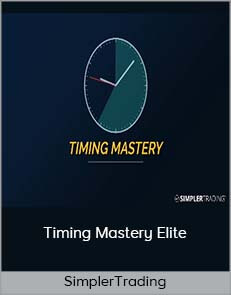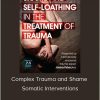-
1 × $90.00
-
Keith Miller - Integrate Mindfulness with Couples Therapy. Practical Tools to Help Couples in Crisis1 × $45.00
-
1 × $150.00
-
1 × $65.00
-
2 × $127.00
-
1 × $200.00
-
1 × $30.00
-
1 × $25.00
-
1 × $40.00
-
1 × $150.00
-
1 × $30.00
-
1 × $25.00
-
1 × $39.00
-
1 × $150.00
-
1 × $90.00
-
1 × $80.00
-
1 × $55.00
-
1 × $55.00
-
1 × $40.00
-
1 × $130.00
-
1 × $40.00
-
1 × $80.00
-
1 × $77.00
-
1 × $35.00
-
1 × $420.00
-
2 × $200.00
-
1 × $40.00
-
1 × $90.00
-
1 × $15.00
-
1 × $25.00
-
1 × $90.00
-
1 × $10.00
-
1 × $40.00
-
1 × $70.00
-
1 × $75.00
-
1 × $40.00
-
1 × $59.00
-
1 × $15.00
-
1 × $50.00
-
1 × $12.00
-
1 × $37.00
-
1 × $47.00
Janina Fisher, PhD – Complex Trauma and Shame – Somatic Interventions
$70.00$300.00 (-77%)
causes of post-traumatic stress to help clients break free from past trauma and thrive in life.
Janina Fisher, PhD – Complex Trauma and Shame – Somatic Interventions

Check it out: Janina Fisher, PhD – Complex Trauma and Shame – Somatic Interventions
This course will make even your most complex trauma clients easier to treat…
World-renowned trauma expert and author Dr. Janina Fisher developed a comprehensive online training course — specifically for fellow clinicians like you — that’s filled with today’s most effective somatic interventions for treating complex trauma.
These body-oriented interventions, which are based on sensorimotor psychotherapy, directly address the underlying causes of post-traumatic stress to help clients break free from past trauma and thrive in life.
In the course, you’ll see compelling, real-life in-session videos of the interventions and techniques in practice, plus you’ll learn the underlying neuroscience that explains how and why they are effective — to help you better assess trauma symptoms and improve your treatment plans.
And as a free bonus when you register today, you’ll also get access to a special bonus video on overcoming shame and self-loathing in the treatment of trauma.
Don’t miss this opportunity to advance your trauma treatment approach and your practice with a truly integrative understanding of somatic interventions.
Sensorimotor psychotherapy will revitalize you and your practice…
In this transformational online training course, Janina Fisher, PhD will provide in-depth training on neurobiologically informed trauma treatment and sensorimotor psychotherapy. You’ll be fully prepared to integrate somatic interventions into your practice to address trauma-related challenges such as:
Dysregulated autonomic arousal
Overwhelming affects and sensations
Intrusive images and memories
Impulsivity and acting out
Dissociative phenomena
Numbing and disconnection
Janina will guide you step-by-step through materials covering:
The Neurobiological Legacy of Trauma and how the mind and body react to threat and danger
The Nature of Traumatic Memory and how the “body keeps the score” (van der kolk)
Neurobiologically Informed Trauma Treatment to regulate the nervous system and restore a “witnessing self” by reframing symptoms and avoiding self-defeating stories
Sensorimotor Psychotherapy, tracking the body as a source of information and using body-centered treatment techniques
Mindfulness and Neuroplasticity in practice to differentiate thoughts, feelings and to better interpret body experiences
Challenges of Trauma Treatment and secondary symptoms such as anger, aggression, self-harm, depression, anxiety
Therapy as a Laboratory for the Practice of New Actions to dis-identify with the symptoms and develop a new language and story
Somatic Resolution of Traumatic Events using somatic resources to address symptoms, repair and transform the traumatic events, rather than merely re-processing, to create internal safety and to feel safe with others
Through Janina’s expert insightful commentary, case studies and examples, you’ll develop highly practical, evidence-based skills, and learn powerful assessment tools, case conceptualization techniques and proven clinical strategies that you can immediately apply in your practice.
Get Janina Fisher, PhD – Complex Trauma and Shame – Somatic Interventions on senselearn.com right now!
Next, you’ll watch Janina in action!
Janina will demonstrate and guide you moment-by-moment through the application of somatic interventions in real-life client therapy sessions.In-Session Video 1: Working with Somatic Components to Overcome Trauma Related Fears of Feeling Good
Janina’s client feels ready for a relationship but paralyzed by an inability to express positive feelings. Years of talk therapy have given her insight into this pattern as a legacy of early childhood trauma — without resolving it. During the session, Janina and the client notice shoulder twitching each time something positive is mentioned. Assuming that the shoulder is communicating specific beliefs or fears that can be addressed through internal dialogue, Janina uses somatic interventions to ‘befriend’ the shoulder, explore the fears it warns about, and guide the client towards relaxation.In-Session Video 2: Steps Toward Healing Traumatic Attachment & Borderline Personality Disorder
In this session, Janina’s client is a 22-year-old mother of two, diagnosed with borderline personality disorder, who wants to work on stabilizing a volatile relationship to the father of her children and learn to manage her rage and impulsivity. Adopted at 18 months after being removed from her abusive parents’ care, she has always exhibited classic signs of traumatic attachment: separation anxiety, fear of abandonment, rejection sensitivity, fight and flight responses to disappointment or betrayal — and equal difficulty tolerating distance and closeness. In this session, healthy attachment to her children is used as a resource to help her gain insight, develop control over impulsive behavior, and facilitate internal compassion and self-soothing.Get Janina Fisher, PhD – Complex Trauma and Shame – Somatic Interventions on senselearn.com right now!Shame and Self-Loathing in the Treatment of Trauma
with Janina Fisher, PhDDoes shame prevent your traumatized clients’ recovery and hamper their ability to find relief and perspective despite effective treatment?
Do your clients’ feelings of worthlessness and inadequacy interfere with taking in positive experiences, leaving them to feel hopeless?
Despite your best efforts, unshakeable feelings of shame and self-hatred often undermine treatment: your clients repeatedly take two steps forward, then one step back. In this one of a kind bonus seminar, you’ll understand shame from a neurobiological perspective — as a survival strategy driving somatic responses of automatic obedience and total submission — enforced by the client’s punitive introspection.
You’ll learn to integrate traditional psychodynamic and cognitive-behavioral techniques with sensorimotor interventions that emphasize posture, movement and gesture. With these new techniques, issues of shame can become an avenue to transformation rather than a source of stuckness.




















































































































